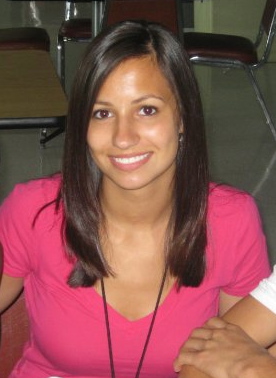 Analyzing Social Media Data
Analyzing Social Media Data
Morgan Madeira
Junior, Computer Science
Social media has increasingly become an outlet for expression for a large part of our society. Literature suggests that analyzing data from these sites can lead to improvements in areas such as health-care and search-ad targeting. Users of these sites often associate with many other users described as “friends,” even if they do not have a strong connection, or what would be described as friendship in daily life. It is valuable to determine the strength of relationships between users and to identify communities within social networks. These communities represent people with similar characteristics, which are used by applications to solve many real-world problems. For instance, it is useful to identify groups that are interested in a specific movie genre. Information about these groups can be used to target movie advertisements towards the people most interested in that genre. These types of problems have similar characteristics to identifying close friends. We have created a system to collect and analyze the data about user characteristics, while being respectful of privacy concerns. The system is composed of a front end Facebook application and a back end machine-learning based tool. The front end component gathers data about a user and their friends. The back end uses the collected data and machine-learning techniques to determine relationships between users.
In her own words:
We asked Morgan a few questions about her research project, which was funded by an Undergraduate Research Award (URA). Here's what she said:
Briefly summarize your research in non-technical terms: My research focuses on identifying communities in social media sites. For my current project, I use Facebook data to predict close groups of friends. Then, I evaluate the accuracy of my predictions based on user reports of their closest friends. Real-world problems with similar characteristics to identifying close friends are useful in many applications.
When did you start this research? I’ve been working in the Ebiquity lab since fall 2010, but have only been working on this project since spring 2011. Dr. Penny Rheingans referred me to work with Dr. Joshi because he was looking for undergraduate women interested in research.
Why is your research important? There is an immense amount of data in social media sites, which many people use for daily communication and expression. My research helps find ways to determine what information in the data is useful, and how it can be used to solve real-world problems.
What has been the biggest challenge so far? The biggest challenge so far has been making time for classwork and research. I’m taking a full schedule of classes, so it is difficult to find time for research when class assignments are my first priority.
The biggest reward? The biggest reward has been applying class material to outside work and learning about research. I appreciate and enjoy research more than I ever thought I would.
What advice would you give to students interested in pursuing undergraduate research? My best advice would be to investigate the ongoing research at UMBC. Then, try to determine what area you are most interested in, and find a faculty member that does work in that area. Approach them and express your interest in working with them on a research project. There is a good chance they will want to work with you or will help you find another faculty mentor.
Don't forget to see Morgan's poster presentation at URCAD on Wednesday, April 25 in the University Center (UC) Ballroom from 10 a.m. to 12:30 p.m.